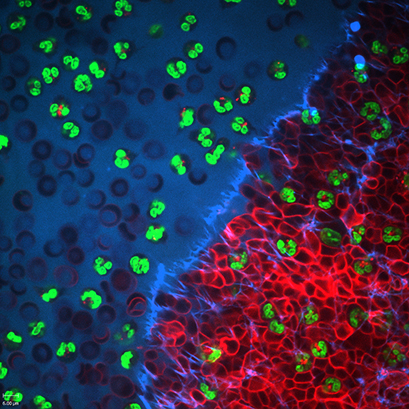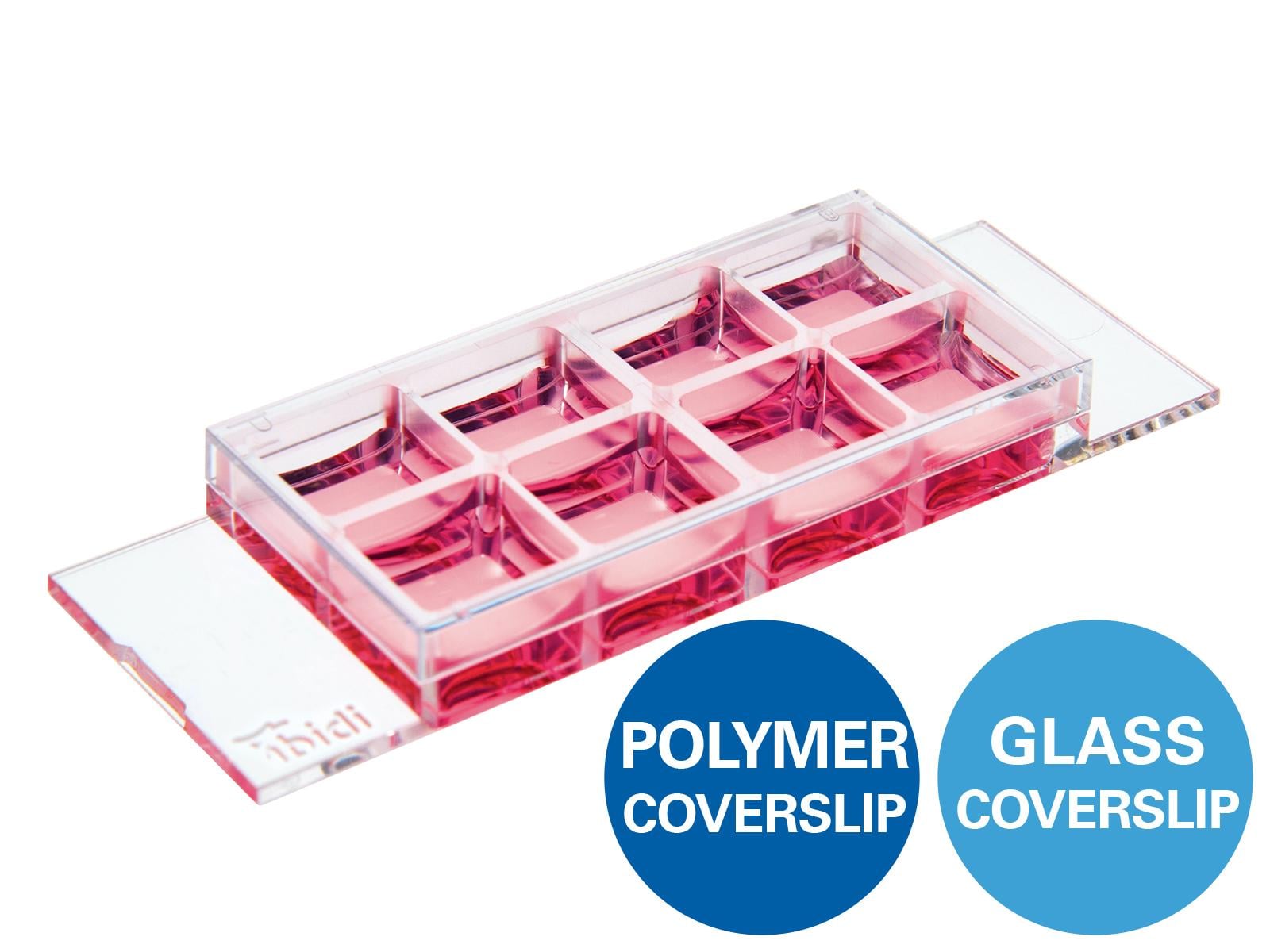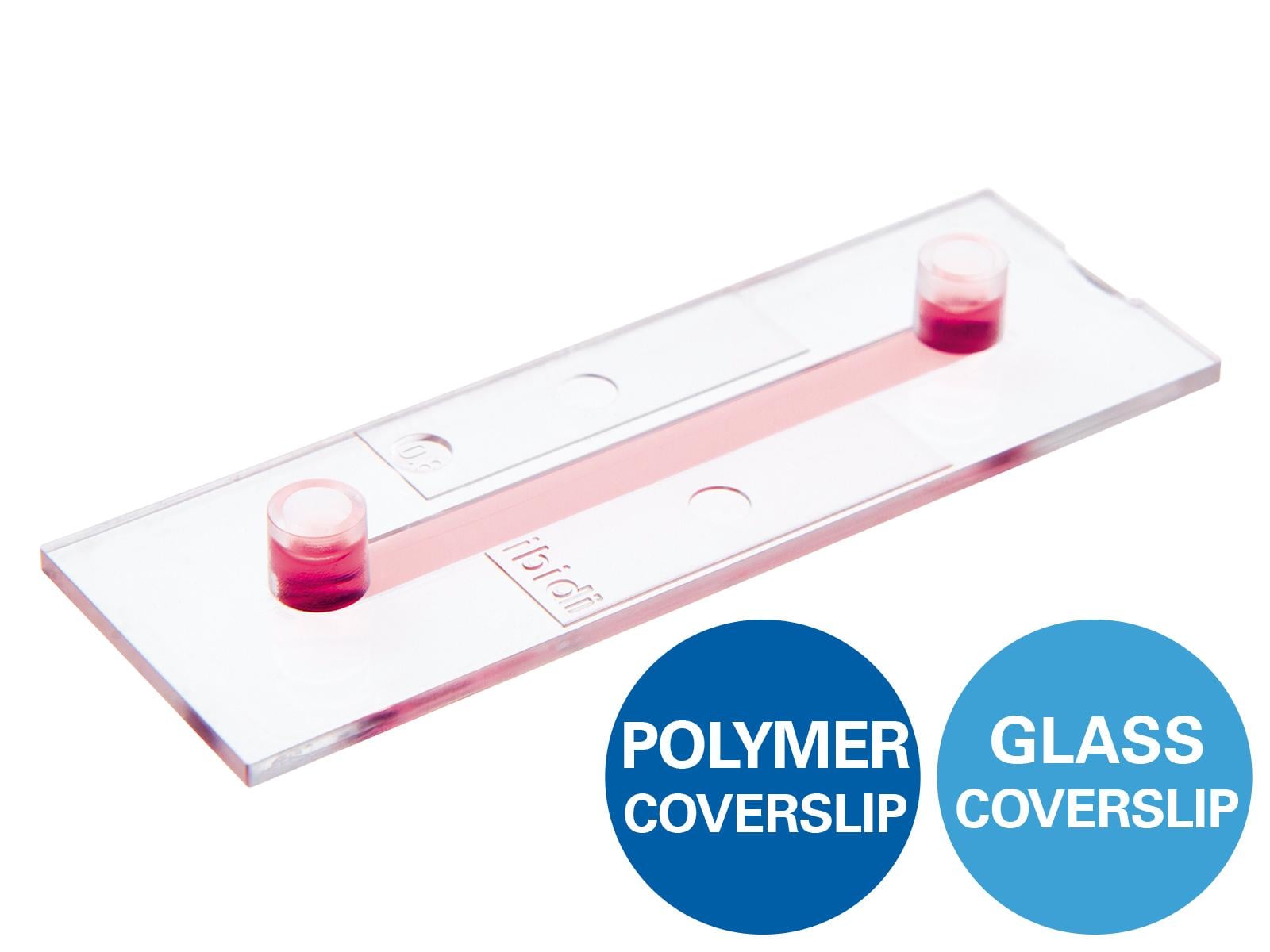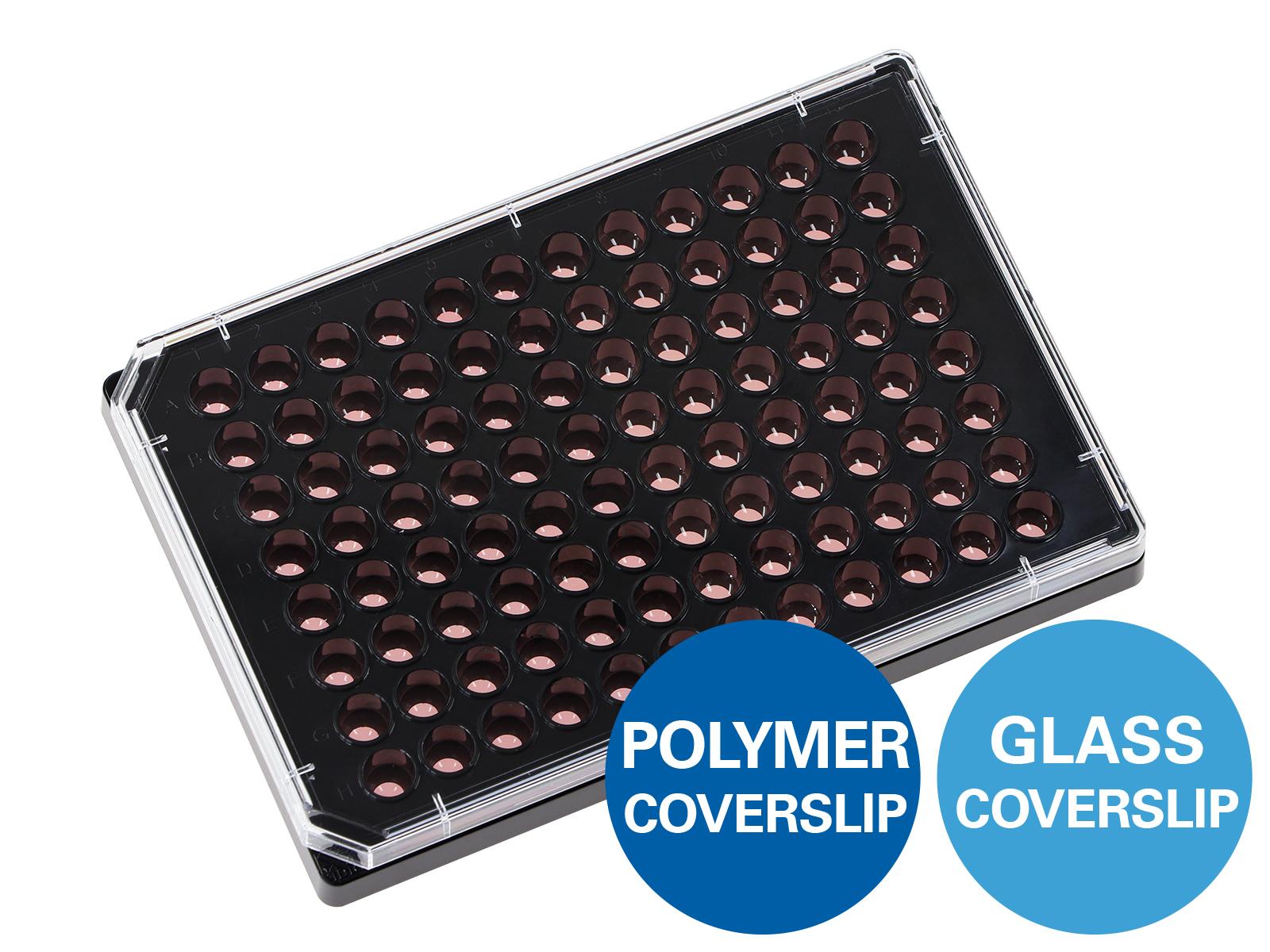Immunology
The Immune System
The immune system protects our body against various pathogens, such as viruses, bacteria, and parasites. It is a complex network of cells, tissues, and organs that work together to identify and eliminate foreign invaders while sparing the body's own cells and tissues. Beyond anatomic and chemical barriers, the immune system can be divided into two fundamentally different mechanisms of defense: innate immunity and adapted immunity.
Innate immunity is the first line of defense after a pathogen has crossed the anatomic barrier: within minutes to hours, inflammatory inducers (e.g., bacterial lipopolysaccharides) activate immune responses in sensor cells such as macrophages, neutrophils, and dendritic cells. In response, mediators such as cytokines are secreted, which can either act directly on the invading pathogens or influence further cells to propagate the immune response. The innate immune response is rapid and already present at birth; however, it is rather non-specific and does not have any immunologic memory.
Adaptive immunity, in contrast, is a more specialized response and rather takes several days to emerge. It is developed over time in response to specific pathogens and involves the activation of lymphocytes (B cells and T cells). B cells produce antibodies that can recognize and bind to specific antigens on the surface of foreign substances, marking them for destruction by other immune cells. T cells help to coordinate the immune response by recognizing and interacting with infected cells or other foreign substances directly, either by killing them or by releasing signaling molecules that activate other immune cells. B cells and T cells work together in a coordinated manner to help the body fight off infections and other threats. The adaptive immune response is characterized by memory, meaning that it can remember and respond more quickly to subsequent exposures to the same antigen. It is essential for protecting against infectious diseases and can also provide long-term protection through vaccinations.
Understanding the immune system is critical for the development of vaccines, immunotherapies, and other medical interventions to treat and prevent diseases. ibidi helps scientists answer immunologic questions with a variety of tailored solutions for cell-based assays and high-end microscopy.
Murphy K, Weaver C, Mowat A, Berg L, Chaplin D, Janeway CA. Janeway's Immunobiology. Garland Science; 2017.

Biopsychronology of a COVID-19 patient blood sample in the ibidi µ-Slide 8 Well after induction of coagulation. The right side shows the area of the blood clot with the fibrin network (blue) and the erythrocytes (red). Note the abundant granulocytes (their nuclei labeled in green) fighting against COVID-19 and other enemies of our health. Image acquisition was performed on a spinning disc confocal microscope. Mirjam Bachler, Martin Hermann, Dietmar Fries, Department of Anesthesiology and Critical Care Medicine, Medical University Innsbruck, Innsbruck, Austria.
How ibidi Contributes to Immunology Research
ibidi develops solutions and products for cell culture assays, resulting in thousands of immunology-related publications with ibidi products.
Various in vitro approaches, such as chemotaxis and migration assays, or perfusion assays, will help you analyze your immunologic field of interest. In addition, we offer detailed solutions for the complete workflow of your cell-based assay, from sample preparation to image analysis, to get you reproducible and valid results.

Read on and learn more about methods for Immune Cell Analysis, Tumor Microenvironment and Immunooncology, Immune Cell Migration and Chemotaxis, or Immune Cells Under Shear Stress.




